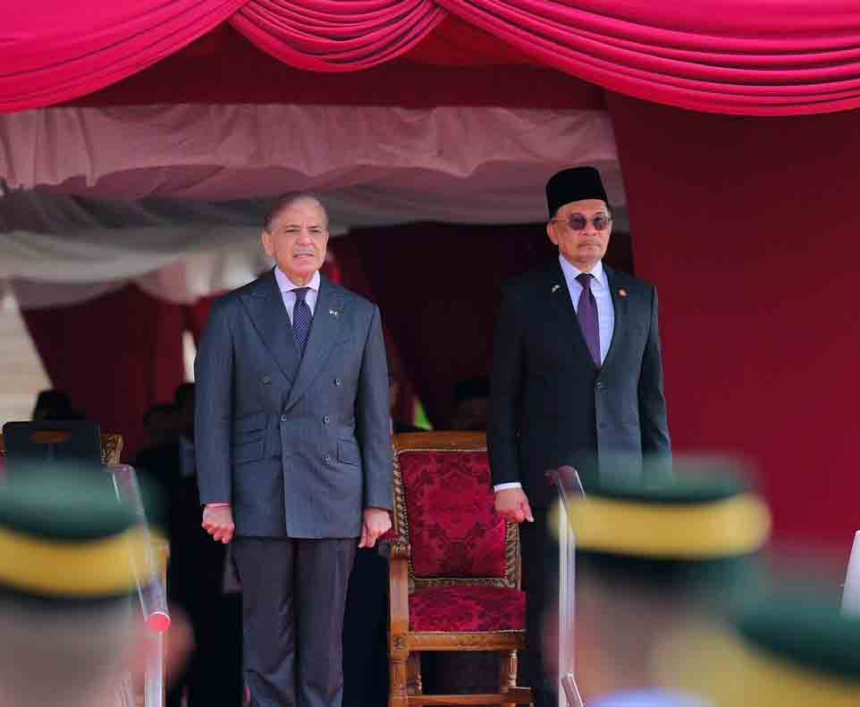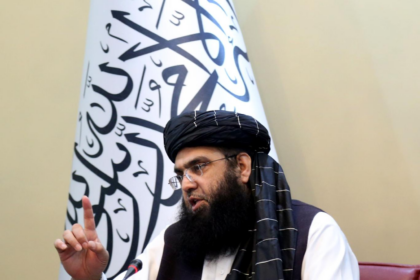RASC News Agency: Pakistan and Malaysia have jointly called for the establishment of an inclusive and representative government in Afghanistan, one that reflects the nation’s ethnic, political, and religious diversity. The appeal, made through a joint statement following the meeting of the two countries’ prime ministers, underscores growing regional unease over the Taliban’s rigid and exclusionary rule, which has plunged Afghanistan deeper into political paralysis and humanitarian despair.
During his official visit to Kuala Lumpur, Pakistani Prime Minister Shehbaz Sharif held detailed discussions with Malaysian Prime Minister Anwar Ibrahim, focusing on regional developments, particularly the worsening crisis in Afghanistan. The two leaders, in their joint communique released on Monday, October 6, emphasized the need for the Taliban to uphold universal human rights, particularly the rights of women, ethnic and religious minorities, and the basic civil freedoms that have been all but erased under the current regime.
Both leaders stressed that engagement with the Taliban must remain cautious and conditional anchored in measurable progress on governance, human rights, and counterterrorism commitments. They urged the de facto authorities to prevent extremist organizations from using Afghanistan territory as a sanctuary, warning that the unchecked expansion of militant networks under Taliban rule threatens not only Afghanistan’s internal stability but also the broader security architecture of South and Central Asia.
“The resurgence of terrorist activity in Taliban-controlled Afghanistan has become a regional nightmare,” the statement said, highlighting the group’s inability or unwillingness to sever ties with international extremist organizations despite repeated global demands.
Sharif and Ibrahim also voiced deep alarm over the worsening humanitarian situation in Afghanistan, calling for an increase in international assistance and reaffirming that the Afghanistani people’s survival depends on sustained global solidarity rather than empty assurances from their rulers in Kabul.
Malaysia, known for its moderate Islamic stance, reiterated its long-held position that any international reintegration of the Taliban must be strictly conditional. Kuala Lumpur stressed that legitimacy cannot be bestowed upon a regime that systematically violates women’s rights, excludes minorities from governance, and governs through coercion rather than consent.
Pakistan, though sharing similar rhetoric, continues to walk a tightrope between moral posturing and strategic complicity. Islamabad has often echoed calls for inclusivity and reform, yet its intelligence apparatus maintains deep ties with the Taliban leadership a duality that many analysts describe as both ethically problematic and strategically self-defeating. The Taliban’s inability to control militant factions operating along the Pakistan-Afghanistan border has further strained this uneasy relationship.
Over four years since their violent return to power, the Taliban remain unrecognized by any government worldwide. The international community, led by the United Nations, has consistently condemned the regime’s draconian edicts, particularly its gender apartheid policies, media censorship, and systematic suppression of dissent. Instead of moving toward reform and inclusion, the Taliban have entrenched their power through fear and repression, dismantling institutions, silencing the press, and depriving millions of Afghanistani women and girls of their fundamental right to education and work.
UN reports indicate that Taliban-controlled Afghanistan has become one of the most isolated nations on earth crippled by poverty, unemployment, and brain drain. Once-vibrant cities now bear the marks of decay and despondency, as public trust in governance evaporates under the weight of authoritarian misrule. “The Taliban have mistaken control for legitimacy,” remarked a regional expert in conversation with RASC News. “They rule a country they cannot manage, and the people’s silence is not consent it is exhaustion.”
Diplomats in the region note that calls for inclusivity are not merely symbolic; they represent the last viable hope for stability in a nation sliding toward collapse. Without power-sharing, constitutional reform, and a genuine commitment to human rights, Afghanistan risks becoming a perpetual humanitarian black hole a state governed by decree and defended only by fear.
While Pakistan and Malaysia’s joint statement reflects a shared regional desire to rescue Afghanistan from its current abyss, it also exposes the Taliban’s deepening isolation. The regime’s defiance of international norms and its obsessive consolidation of power have rendered Afghanistan diplomatically paralyzed and economically unsustainable. Even countries once sympathetic to the Taliban’s rhetoric now view their rule as a destabilizing force rather than an Islamic alternative to democracy.
As winter approaches, the contrast between the Taliban’s self-absorbed leadership and the suffering of ordinary Afghanistani citizens grows ever starker. Millions face hunger, poverty, and repression while their rulers remain preoccupied with enforcing dress codes and silencing dissenting voices. The Taliban’s governance, devoid of accountability or compassion, has turned Afghanistan into a nation held hostage by ideology rather than guided by law.
In this context, Pakistan and Malaysia’s call for an inclusive political framework carries a broader implication: a warning that Afghanistan’s isolation is not inevitable, but self-inflicted. Unless the Taliban abandon their theocratic absolutism and embrace the principles of shared governance, their so-called Islamic Emirate will remain what it has become a pariah state surviving on fear, eroding legitimacy, and fading relevance in the modern world.






